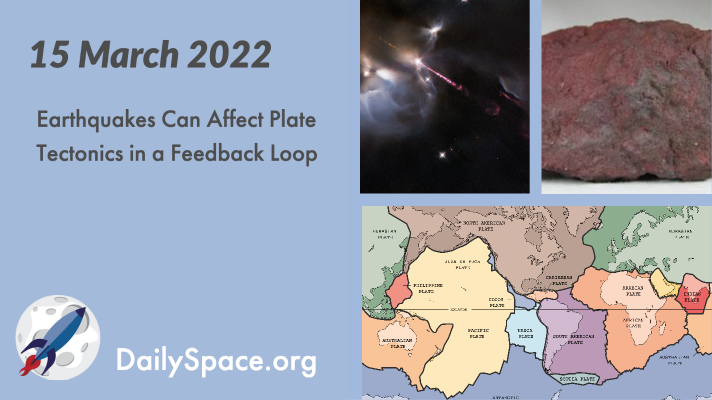
Mar 16, 2022 | Climate Change, Daily Space, Earth, Mars, Neutron Stars / Pulsars, Physics, Stars
Researchers studying GPS data collected from the 1999 İzmit earthquake in Turkey found that the quake changed the movement of the plate, and this effect may be possible for other tectonic plates. Plus, more pretty images, starspots merging, melting Arctic sea ice, and minerals on Mars.
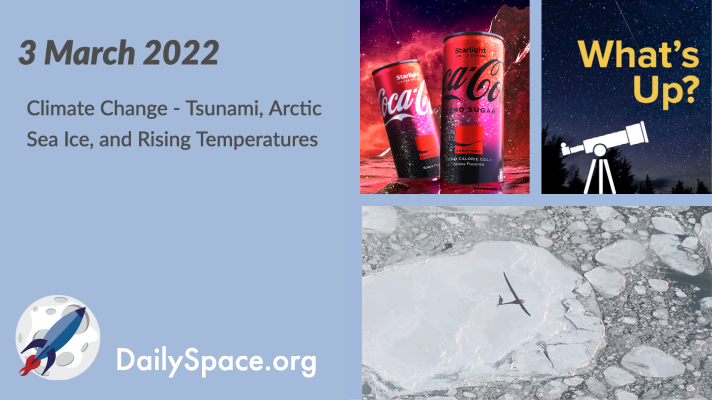
Mar 4, 2022 | Climate Change, Daily Space, Earth, ESA, Galaxies, Neutron Stars / Pulsars, Review, Rockets, Sky Watching, Spacecraft, SpaceX, Starlink, Stars
In the latest climate change news, ancient underwater landslides could help us understand tsunami risks in the Middle East, NASA now has a ‘Vanilla’ ice drone to study the Arctic, and lake temperatures are rising. Plus, we bring you joy with this week’s What’s Up and a review of Starlight Coke.
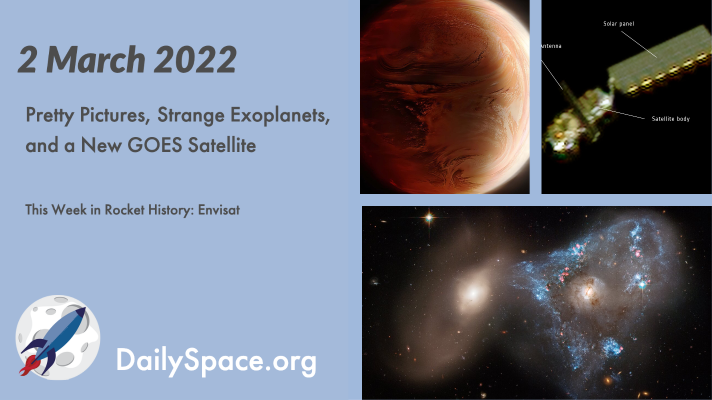
Mar 3, 2022 | Daily Space, ESA, Exoplanets, Galaxies, Kepler, Neutron Stars / Pulsars, Observatories, Random Space Fact, Rockets, Space History, Spacecraft
To bring some joy into a fraught world, we have rounded up a few of the latest image releases of star mergers and galaxies to brighten your day. Plus, we’ll look at a few strange exoplanetary systems and their amazing science, talk about the latest GOES satellite to launch, and this week in rocket history is all about Envisat.

Mar 2, 2022 | Asteroids, Black Holes (Stellar), Crewed Space, Daily Space, Earth, Fast Radio Bursts, Neutron Stars / Pulsars, Rocket Lab, Rockets, Space China, SpaceX, Starlink, Supermassive Black Holes
As we return from our mini-break, we bring you some highlights of stories that happened while we were away, including black holes spiraling toward each other, the possible origin of a fast radio burst, and more information on the demise of the dinosaurs. Plus, Erik Madaus brings us updates on quite a few rocket launches.
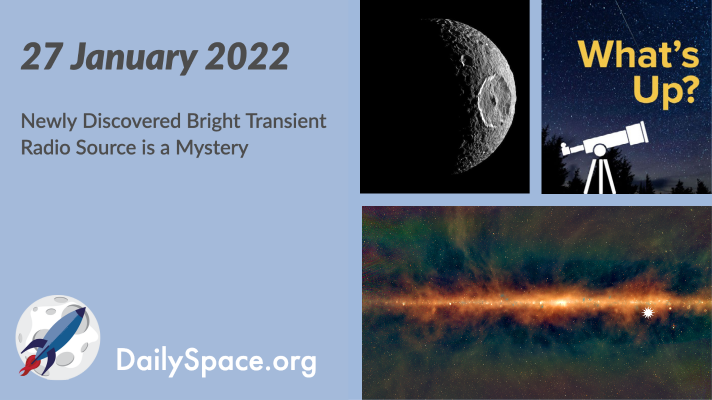
Jan 28, 2022 | Daily Space, Earth, Mars, Neutron Stars / Pulsars, Observatories, Our Solar System, Saturn, Science, Sky Watching, The Sun
Scientists using the Murchison Widefield Array in Australia recently discovered an extremely bright source of radio waves, releasing bursts of energy three times an hour. That timing makes the object behave unlike anything else seen to date, leaving the research team with a new mystery to unravel. Plus, everything else is about water today, all over the solar system, and we present this week’s What’s Up segment.
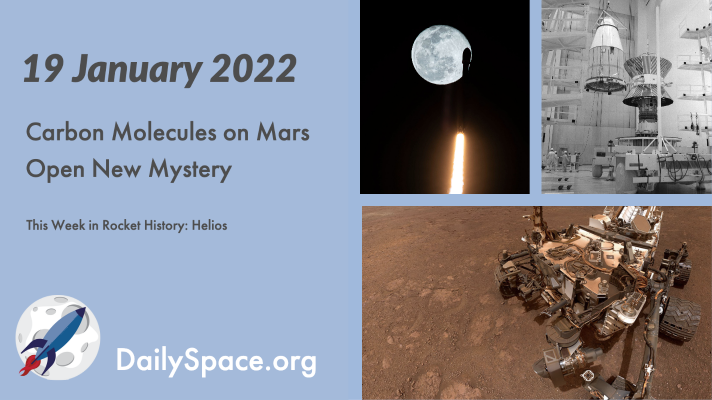
Jan 20, 2022 | Astrobiology, Cosmology, Curiosity, Daily Space, Mars, Neutron Stars / Pulsars, Rockets, Space History, Spacecraft, SpaceX, Starlink, Stars, Supermassive Black Holes, White Dwarfs
NASA’s Curiosity rover has discovered carbon isotopes on Mars which are usually caused by the degradation of biological methane, leading scientists to examine other potential reasons for the molecules. Plus, more Starlink satellites, their impact on observing, and This Week in Rocket History.








 We record most shows live, on Twitch. Follow us today to get alerts when we go live.
We record most shows live, on Twitch. Follow us today to get alerts when we go live.